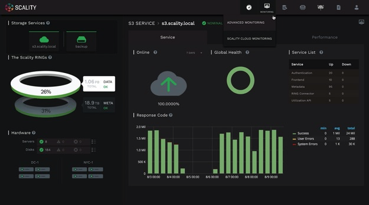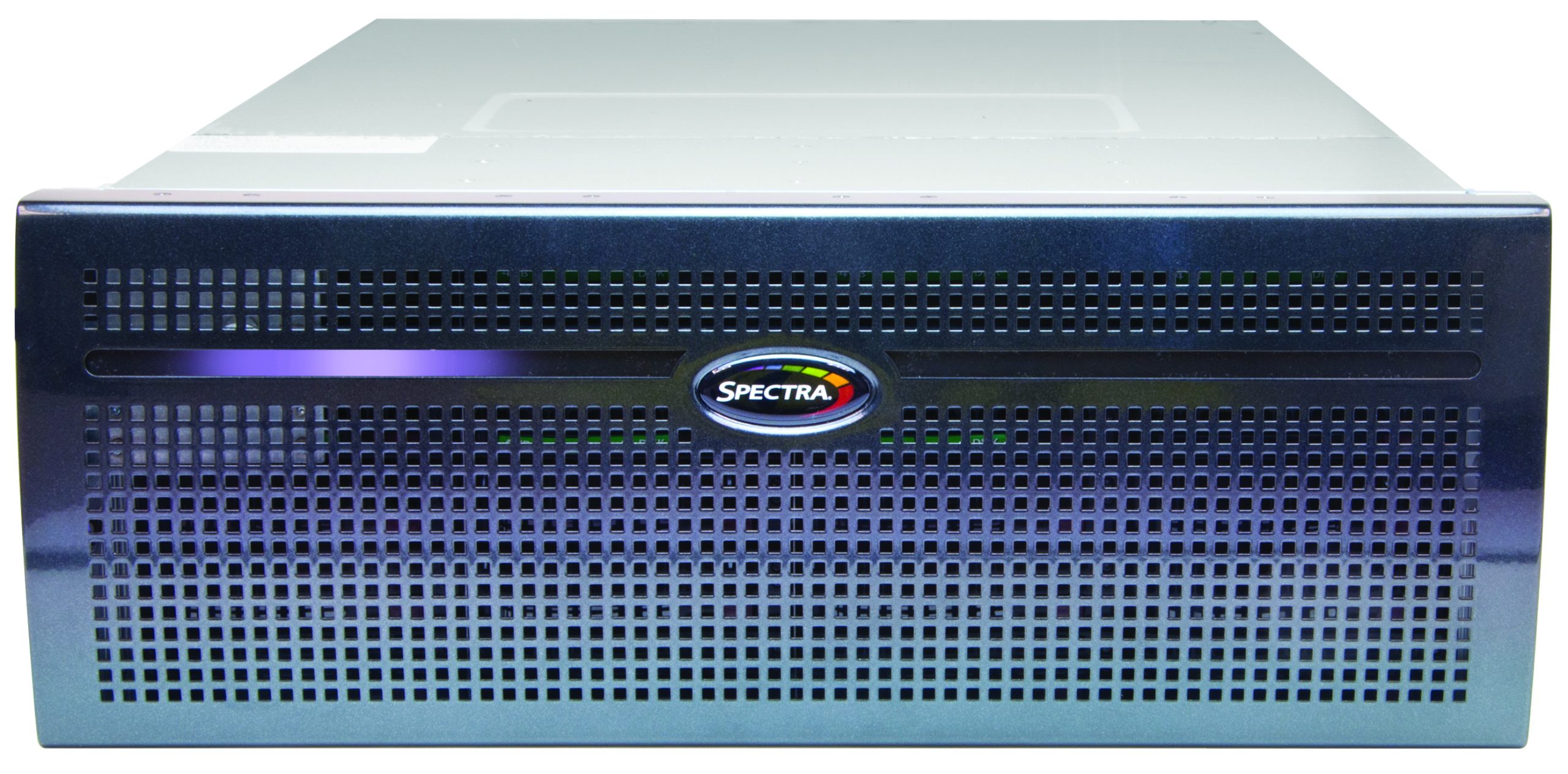Scalable Network Attached Solutions for Modern Infrastructure
Scalable Network Attached Solutions for Modern Infrastructure
iM Critical wins award for start-up innovation
iM Critical has announced that it has won the 2022 Tech 50 award from the Pittsburgh Technology Council for the most innovative start-up. The 26th annual event was a gathering of over 600 people - a who’s who of local companies, non-profits, and technologists - highlighting the impact they have made in the region.
PTC President and CEO, Audrey Russo, says, “It is truly the biggest night in Pittsburgh’s tech ecosystem each and every year.” With this recognition, which was awarded to the top company in each of 10 categories, iM Critical underscores its role as a resource within this rapidly growing, technology-rich market and amplifies its commitment to delivering mission-critical facilities and IT services.
“We are thrilled to be recognised in this way in Pittsburgh, aka Silicon Valley East - a market where iM Critical is delivering sustainably-minded, scalable, high-performance computing platforms. We’re honoured to be highlighted among a group of such fantastic innovators,” says Michael Roark, CEO of iM Critical. “Our unique breed of plug-and-play IT ecosystems, built with all the most pressing IT mandates in mind, offer a truly advantageous space for growth and innovation across healthcare, academic research, AI, IoT, smart cities, and more in an HPC-hungry location. We’re proud to support this incredible market with next-generation sustainability and robust, versatile solutions as it continues on its technological trajectory.”
iM Critical’s flagship 10MW, high-performance modular data centre campus in Pittsburgh offers a purpose-built response to the growing mission-critical needs of the marketplace. The company’s full-stack IT solutions and six-nines environment are especially valuable within the greater Pittsburgh market, which has traditionally been constrained by a lack of optimal data centres. iM’s solution enables crucial deployment densification and promotes better efficiencies for supercomputing requirements, offering sustainable advantages where many thought they may never find them. In addition to owning and operating data centres, the company factory builds modular, scalable, and sustainability-focused solutions to revolutionise the way data centres are consumed for the future of high intensity workloads and business goals.
iM Critical will be deploying its modular data centres on its phase-one modular campus in December 2022.
Beatrice - 22 November 2022
Scalable Network Attached Solutions for Modern Infrastructure
NAFFCO FZCO leverages Arcserve 9000 series appliances
In the business of creating and selling safety products, secure IT solutions are a sacrosanct requirement. With more than 15,000 team members - including 2,000 engineers and over 6,000,000ft2 of manufacturing facilities - the NAFFCO FZCO's IT department is crucial to handling critical business applications.
However, prior to installing the Arcserve appliances in its main Dubai branch, the company was facing multiple issues, including slow backup performance and even incomplete or failed backups. As the company has grown over the last two decades, the organisation needed IT solutions that were stable and reliable, had multi-site replication, as well as built in data and system backups from ransomware attacks.
That's where Arcserve appliances came in. Over the last six months, the company has reported an increase in productivity, as well as application performance and a healthy return on investment.
The challenge
In its vision to become the world's number one provider of innovative solutions in protecting life, environment and property, NAFFCO's IT infrastructure needed a massive upgrade. According to Mohannad Hennawi, the organisation's Group IT Manager, who manages a team of 20 IT staff team members, the company's previous systems were severely lacking when it comes to backup performance and data security.
After a complete IT infrastructure review, Mohannad noticed that slowly and, many times, incomplete backup performance was hampering his team's and the larger organisation's overall performance. More specifically, unsuccessful backup on email exchanges, data protection and ransomware were proving to be troublesome for the company.
To modernise its operations and further strengthen its data resilience, NAFFCO needed a new data protection solution that was cost-effective, scalable and flexible with integrated cyber security features to secure its critical digital assets.
The solution
Working closely with Arcserve local partner Gerab, the 9360DR and 9096DR were deployed in Dubai and Abu Dhabi to protect NAFFCO's 45 physical servers and 100 virtual machines and streamline the organisation's environment.
Arcserve appliances provide a self-contained, ‘set and forget’, secure DR and backup solution architected global source-based deduplication, multi-site replication, tape integration, automated data restore capabilities and assured recovery. "After considering and comparing against many vendors, we finally chose the Arcserve appliances as they are easy to manage and whilst being feature-rich, with full cyber security protection against ransomware," says Mohannad.
To protect data and system backups from ransomware and other types of malicious attacks, the Arcserve appliances include the Sophos Intercept-X Advanced for Server advanced endpoint protection that combines a signature-based and signatureless malware detection, a deep learning neural network, anti-exploit technology, CryptoGuard anti ransomware and WipeGuard technologies to stop the widest range of end point threats.
"After considering and comparing against many vendors, we finally chose the Arcserve appliances as they are easy to manage whilst being feature rich, with full cyber security protection against ransomware," says Mohannad.
While the implementation took three days to execute and a week to go online, Mohannad says the process was seamless and ‘smoothly done.' "The management interface is quite simple to understand and use," he comments. "We would recommend providing deep technical training for the team in the future."
The result
With the assistance of Gerab, NAFFCO first deployed the 9360DR in Dubai's data centre in February 2022. It has more than met the company's needs and expectations, so much so that it led NAFFCO to also purchase the 9096DR for its Abu Dhabi branch.
Having seen results within the first week of deployment, the company's Group IT manager is satisfied with how the solutions have helped in increasing productivity by 100%, as well as how it has led to 50% more seamless application performance, and 50% savings in the cost of operations.
In the future, the company also aims to install Arcserve Appliances at its Qatar and Saudi Arabia branches. "We need to plan for a backup solution which will be compatible with cloud solutions," concludes Mohannad.
Beatrice - 21 November 2022
Data Centre Operations: Optimising Infrastructure for Performance and Reliability
Enterprise Network Infrastructure: Design, Performance & Security
News in Cloud Computing & Data Storage
Scalable Network Attached Solutions for Modern Infrastructure
Scality ships RING9, software for hybrid cloud data storage
Scality has announced RING9 - the ninth generation of its RING scale-out file and object storage software - a solution that allows IT teams to build and run a modern hybrid cloud data storage infrastructure with higher performance and efficiency.
RING9 is built on major investments in Scality’s flagship RING solution that enables IT teams to:
● Fully leverage flash media through tiering and dynamic data protection policies
● Modernise monitoring stack with Prometheus tools and APIs
● Streamline integration with API extensions to ecosystem partners such as Veeam and VMware Cloud Director (VCD)
With these new capabilities, RING9 further enhances and simplifies scale-out file and object storage for enterprises building private and hybrid cloud storage services with comprehensive AWS S3 and IAM compatibility.
“Scality is a strategic object storage provider we trust to house our customer’s data. Over the last several years, we’ve partnered closely with Scality to build a scalable and sovereign cloud service,” explains Laurent Cheyssial, CTO at Jaguar Network. “With the comprehensive AWS-compatible S3 API and user security management in RING9, we now have the flexibility to offer our customers cloud backup services for a wide variety of workloads while keeping data secure.”
“Scality continues to innovate in scale-out object and file storage as evidenced by its new multi-tiering capability. This new feature enables high performance with low-latency flash and increases storage efficiency with tiering as data ages. This will improve usages such as backups and medical imaging, as well as new latency-sensitive workloads in media by automatically optimising data placement,” says Randy Kerns, Senior Strategist and Analyst at Evaluator Group.
RING9 enhancement focuses
High performance and storage efficiency: RING9 augments its use of the latest generations of flash media through the Storage Accelerator (SA), a powerful multi-level tiering capability. This enables dynamic tiering and data protection policies for ultra-fast IO to hot storage tiers via low-latency NVMe flash - with automated movement of data to increasingly more cost-effective tiers on lower-cost flash, such as quad-level cell (QLC), or on traditional hard disk drives (HDD). These enhancements expand the addressable markets and use cases for RING9, and enable IT teams to address Tier 1, latency-sensitive workloads in media streaming, medical imaging and big data analytics that previously required a separate resource.
Modern stack administration: RING9 brings monitoring into the modern cloud native data centre, with the integration of a new stack based on Prometheus and AlertManager, a new comprehensive UI dashboard with user actionable alerting. In addition, the Scality Cloud Monitor now enhances remote monitoring and observability for both customers and Scality’s premium Scale Care Services support offerings.
Ecosystem integration: RING9 streamlines the integration of its ecosystem partner products into a customer’s architecture, with support for:
● New APIs for enhanced monitoring, reporting and data placement in solutions from ecosystem partners such as Veeam
● Enhanced VMware vCloud (vCD) integration, including production use in existing real-world service provider deployments
● More comprehensive AWS IAM-compatible bucket policies to tighten security and access control
Paul Speciale, Chief Marketing Officer at Scality, says, “As IT teams embrace the modern stack architecture, they need solutions that eliminate challenges in enterprise data management and storage in the hybrid cloud. Scality RING9 represents a major step change for the entire storage industry. Users gain improvements in storage efficiency through internal flash-to-disk tiering and dynamic data protection policies. For modern cloud based data centres, RING9 fits naturally into the monitoring and observability ecosystem with support for Prometheus and Elastic Cloud. RING9 expands the addressable market and use-case workloads for RING further into the high-performance arena.”
Beatrice - 18 November 2022
Data Centre Infrastructure News & Trends
Enterprise Network Infrastructure: Design, Performance & Security
Infrastructure Management for Modern Data Centres
Scalable Network Attached Solutions for Modern Infrastructure
Neterra launches a new fibre metro network in Sofia
Neterra has built and launched a new, fast and secure fibre metro network in Sofia, the capital of Bulgaria. It covers the entire capital, including all important business centres, central streets, and boulevards.
Through it, the company offers internet for businesses, protection from DDoS attacks, other connectivity services and media streaming. Qualified engineers are responsible for maintenance and provide technical support 24/7.
Neterra's new network has several major advantages compared to the networks of other operators. It is the only fibre network that reaches all the data centres in Sofia, enters them, and connects them. This includes both Neterra's data centres and those of other operators.
Another benefit is that cables are run deeper underground and in protected conduits to prevent risks of outages.
For the Sofia fibre metro network, the company uses the most modern and high-quality equipment - from cables to optical distribution frames (ODF) and connectors. As a result, the connection is of exceptional quality.
In the capital of Bulgaria, Neterra maintains over 550 active business services and consciously invests in reliable components.
Thanks to the large capacities set in advance, Neterra's metro network is expected to meet the needs of businesses in Sofia for years to come.
At the same time, it is connected to the Bulgarian core fibre network of the company, which connects all major Bulgarian cities such as Varna, Veliko Tarnovo, Burgas, Plovdiv and Ruse.
Beatrice - 3 November 2022
Data
Scalable Network Attached Solutions for Modern Infrastructure
Fintech companies to explore data storage locations to meet sustainability goals
FINTECH Circle, in partnership with Bulk Data Centres, has released a report that found that companies’ growing concern about their environmental impact is a major factor in determining where to store their data.
In a survey of senior executives in the fintech and financial services sector, the report - The Data Usage Barometer - explores the broad trends taking place across fintech.
It showed that finance increasingly relies on data and energy intensive technologies, with artificial intelligence expected to be the technology that will be most vital to future growth, followed by machine learning.
Over a third of survey respondents had seen an increase of 50-100% in data usage and storage needs in the past three years, and more than a third of the survey respondents predicted growth of at least two times in the next three years, with half of that group expecting an increase of more than five times.
Susanne Chishti, CEO of FINTECH Circle, says, “From embedded finance, digital assets including cryptocurrencies, trading platforms, and global payment solutions, fintech is disrupting and reshaping our lives. Central to this growth is where companies process their large volumes of data, and our survey shows that the majority of companies have explored or plan to explore alternatives to their current data storage infrastructure.”
Half of the respondents said they are concerned about their company’s environmental impact and an even higher number agree that lowering their firm's carbon footprint is an ethical concern.
Warren Barrie, Director of Bulk Data Centres, says, “Fintech has taken off in recent years and the sector is revolutionising our relationship with financial services. At its core, is the focus of ‘fintech for good’, which is based on the power of the sector to improve society and to be a custodian of sustainable products and services.
“Companies are not just concerned about their shareholder returns but increasingly about their ethical and sustainable impact. This includes the upstream supply chain and where they store their data. We, at Bulk Data Centres, are committed to helping fintech companies by offering long-term sustainable solutions at much lower costs to European counterparts.”
Some of the additional key findings include:
• Two-thirds of respondents said AI will be vital to their future growth, with ML being the second most selected at 41%.
• A third of survey respondents predicted growth of at least two times in the next three years, with half of that group expecting an increase of more than five times.
• Data sovereignty and compliance are the top concerns over growing data usage and storage, selected by over half of respondents.
• Security is the top requirement for data storage and processing, followed by reliability, ability to scale and then cost.
Beatrice - 27 October 2022
Data Centres
News
Scalable Network Attached Solutions for Modern Infrastructure
Schneider Electric research studies reveal sustainability action gap
Schneider Electric commissioned two independent research studies focused on sustainability in IT and data centre operations, and the results reveal a disconnect between intent and action, indicating most of the industry is still at the beginning stage of its sustainability journey.
The two studies were conducted by analysts at 451 Research and Forrester. They collected data from nearly 3,000 global participants, including the largest colocation and cloud providers, and IT professionals across many segments and organisation sizes. The 451 Research paper revealed a perception-versus-reality dilemma, with many enterprise organisations believing their sustainability programs are more advanced than they are, as ‘the maturity evaluations of nearly half of respondents (48%) did not match a previous answer.’ The Forrester paper focused on colocation and found that 73% of organisations ranked sustainability as their second business priority, but only 33% say they have created a strategic sustainability plan.
“The research clearly demonstrates that across the data centre and IT industry, there is a sustainability action gap - the intention appears to be there, but action is lacking,” says Pankaj Sharma, EVP of the Secure Power Division, Schneider Electric. “Of course, IT professionals understand and have taken steps to address sustainability. But what we lack, with some exception, are comprehensive and supported sustainability action plans and measurable targets to create the change required to address the climate crisis. These two research papers have documented a sustainability action gap and that is our collective challenge to address."
Understanding the status of industry-wide sustainability initiatives
Schneider Electric commissioned the two independent research studies, which were designed to help the industry better understand the maturity of sustainability initiatives.
451 Research White Paper: Sustainability at the Edge
The paper researched more than 1,150 medium and large enterprises worldwide, representing more than 20 verticals and their sustainability efforts with distributed IT resources.
Researchers determined that many enterprises believe they are further along in their sustainability journeys than they actually are. For this group, the main driver of sustainability is business value and firms start with measuring energy usage then expand into other sustainability metrics and tools. The greatest challenges in their sustainability journeys include optimising energy usage, followed by obtaining consistent data and metrics (for leaders/advanced firms) and lacking skilled staff (for starter organisations).
The leadership paper from Forrester: Reimagine Colocation Strategy with Sustainability Front of Mind
Researchers polled 1,033 global sustainability decision-makers and colocation providers worldwide, with the objective of exploring sustainability drivers in the colocation provider industry. The study also explored the major challenges for colocation players and where they are investing the most across the technology stack.
The paper found organisations lack a strong comprehensive strategy for the sustainability programs, with only 33% saying their business has created a strategic sustainability plan. This indicates that the industry is still at the beginning of its sustainability journey. The paper determined that moving forward, a key piece of sustainability success will be finding the right partner to help organisations succeed. It also found that businesses that hired an outside sustainability consulting firm as part of their sustainability initiatives are 33% more likely to be high maturity.
Beatrice - 12 October 2022
Cyber Security Insights for Resilient Digital Defence
Data Centre Security: Protecting Infrastructure from Physical and Cyber Threats
Data Centres
News
Scalable Network Attached Solutions for Modern Infrastructure
iM Critical is a finalist for Pittsburgh Technology Council’s Tech 50 award
iM Critical has announced that it has been selected as one of the Pittsburgh Technology Council’s 2022 Tech 50 Finalists. With the recognition as a finalist for these awards, iM Critical cements its status as a key technology innovator in Southwestern Pennsylvania. iM Critical’s flagship high-performance Pittsburgh data centre has created a purpose-built response to the growing mission-critical needs of the marketplace, which is often constrained by a lack of optimal data centres and supports the exponentially increasing demands of high-performance computing (HPC) environments.
Slated for availability in Q4 2022, the 10MW modular Pittsburgh campus in Wilkinsburg will deliver full-stack IT services in a six nines environment. The company’s technologies and innovative data centre build methods deliver ground-breaking HPC options that empower evolving IoT, cyber security, 5G, smart city, robotics, academic research, and AI applications. By provisioning uniquely modular, highly efficient, scalable, customisable, and sustainability-focused solutions alongside robust space power and connectivity, iM Critical is revolutionising the way data centres are consumed for the future of high-intensity workloads and business goals.
“Pittsburgh is where we are planting the flag for iM Critical’s modular HPC data centres. As a company that’s innately focused on being a pillar of the communities where its facilities reside, we’re honoured to be recognised as a finalist for this award by the Pittsburgh Technology Council,” comments Michael Roark, CEO of iM Critical. “We’re thrilled to be a source of support for Pittsburgh’s HPC community, offering lower Power Usage Effectiveness ratios (PUEs) in the data centre, along with on-site renewables, a host of monitored sustainability metrics, and more to help organisations reconcile increased demand for both power and eco-consciousness.”
This Pittsburgh facility, along with the company’s other data centre and enterprise-class connectivity hub in Miami, enable customers to meet the five most pressing mandates of the evolving technological world:
Addressing climate change with sustainable, energy-efficient data centre operations
Migrating to the edge to satisfy needs for highly available, accessible, and fast-moving decentralised platforms
Accelerating IT outsourcing for greater ease and transitions to OPEX spending
Transitioning to a more intelligent factory-built modular approach to create buildings that gain efficiencies and feature seamless expansions
Meeting the burgeoning need for HPC platforms capable of supporting next-gen use cases
The finalists will be celebrated on 9 November 2022, at the 26th Tech 50 Awards ceremony in Pittsburgh.
Beatrice - 12 October 2022
News
Scalable Network Attached Solutions for Modern Infrastructure
Spectra Logic and iRODS Consortium partner over storage
Spectra Logic has announced a collaboration with the iRODS Consortium to create a joint solution built upon Spectra Vail software, Spectra BlackPearl S3 storage and the iRODS data management platform. The combined solution enables customers to use industry-standard cloud interfaces for on-premises disk and glacier storage with object tape, while unlocking multi-site/multi-cloud capabilities.
The iRODS integration with BlackPearl S3 allows organisations to leverage the performance and cost benefits of on-premises glacier storage as disk or tape to access ‘cold’ data and automate workflows, while the integration with Vail provides access to cloud services across multiple clouds. Spectra Vail software and BlackPearl S3 storage have been tested with the iRODS S3 storage resource plugin to fully support the Amazon S3 abstraction that iRODS delivers. The new functionality is available as part of the iRODS 4.2.11 release.
“Organisations that need an on-prem glacier tier will see many benefits with the interoperability between BlackPearl S3 and the iRODS data management platform,” says David Feller, Spectra Logic Vice President of Product Management and Solutions Engineering. “Organisations will be able to take full advantage of on-prem storage and the public, private and hybrid cloud by leveraging the Vail and iRODS integration.”
“The combined Spectra Logic and iRODS solution will enable organisations that rely heavily on tape to archive petabytes of valuable digital data economically and efficiently in a glacier-like tier,” says Terrell Russell, Executive Director of the iRODS Consortium. “We look forward to a lasting collaboration with Spectra Logic that will help our mutual customers drive innovation and accelerate business results.”
Beatrice - 27 September 2022
Scalable Network Attached Solutions for Modern Infrastructure
Siemon signs new distribution partner in Ukraine
Siemon has said that it is pleased to announce that it has signed a new partner in Ukraine: DEPS is a leading value-added IT distributor that specialises in supplying integrated communication solutions to Ukrainian internet service providers and medium to large corporate end-users across different vertical markets.
Siemon has selected the new partner thanks to its customer-focused approach and established relationships with installers, integrators and end users in the Eastern European market, including Ukraine, Serbia, and Moldova. DEPS was also chosen for its leading pre-sales, marketing, technical and after-sales service, as well as the speed of delivery.
“DEPS is a very well-established business, supporting leading organisation in Eastern Europe in deploying data centre infrastructure as well as enterprise and industrial IT networks”, says Siemon Sales Manager, Dan Vout. “With the support of our new partner, we plan to offer our extensive range of network infrastructure products to these markets, support customers with our technical and design expertise and quickly deliver products for new projects.”
As an essential part of its cooperation, Siemon will be providing comprehensive training for new certified installers and the company’s technical team via a newly developed training programme to ensure customers of consistent quality and the best performance standards.
Commenting on the new partnership, Oleksandr Mylnikov, Product Manager at DEPS says: “Siemon has a proven track record of technology innovation. The company’s high-end infrastructure products perfectly complement our range and will helps us extend our offerings to new and existing customers. Currently, many large organisations are moving their data centres and need both rapid and future-proof deployment in new areas. Therefore, timely delivery of reliable products including modular IT infrastructure that is easy and fast to set up, supported by industry-leading structured cabling systems, is key to ensure the operation of essential business services and communications.”
www.siemon.com
www.deps.com
Beatrice - 26 September 2022
Data Centre Infrastructure News & Trends
Data Centre Operations: Optimising Infrastructure for Performance and Reliability
Enterprise Network Infrastructure: Design, Performance & Security
News
News in Cloud Computing & Data Storage
Scalable Network Attached Solutions for Modern Infrastructure
DataQube announces Claude Sassoulas as new CEO
DataQube has appointed Claude Sassoulas as its new Chief Executive Officer (CEO) to head up the company’s next stage of corporate growth and explore its expansion plans.
Claude has over 25 years’ experience in building and running major B2B organisations within the ICT, telecom infrastructure, managed services, and cloud sectors. Prior to joining DataQube, he spent four years as COO at InterCloud. He was also the Managing Director (Europe) at Tata Communications for 13 years, where he grew the business from the ground up to a $500m company.
Under his leadership, DataQube is looking forward to building on the progress it has made so far in the edge computing space and continuing to establish its novel offering as the go-to solution for localised data processing. Over the forthcoming weeks, he will be bolstering DataQube’s commercial and technical expertise through targeted recruitment and overseeing the establishment of a global reseller and partner network.
“I’m delighted to be joining this disruptive company during such an exciting growth phase,” says Claude. “Demand for real-time data handling is growing now that 5G rollouts and the technologies they support are gaining momentum, and existing edge facilities are struggling to deliver. Our solution’s flexible architecture, HPC capabilities, green credentials, and compelling price point are set to be a real game changer in the data centre industry.”
“Claude’s proven ability to scale businesses in telecoms and cloud infrastructure will be invaluable to the commercialisation and development of DataQube,” says Anne-Laure de la Roche, Head of Asset Management at RGREEN INVEST. “Global digitalisation is driving the need for sustainable data handling at the edge, and DataQube is the optimal solution.”
Unlike conventional data centre installations, DataQube pods can be fully up and running within a six-month timeframe, for 50% less Capex and with one of the lowest PUE in the industry. These performance and sustainability advantages, together with the solution’s person-free design and lightweight structure make installations possible in a diverse range of locations where traditional installations are neither practical nor feasible. Moreover, DataQube’s efficient use of space and optimised IT capacity, along with its ability to dramatically lower overall energy usage and CO2 emissions, is setting a new standard in the industry.
www.dataqube.com
www.rgreeninvest.com
Beatrice - 30 August 2022

Head office & Accounts:
Suite 14, 6-8 Revenge Road, Lordswood
Kent ME5 8UD
T: +44 (0)1634 673163
F: +44 (0)1634 673173









